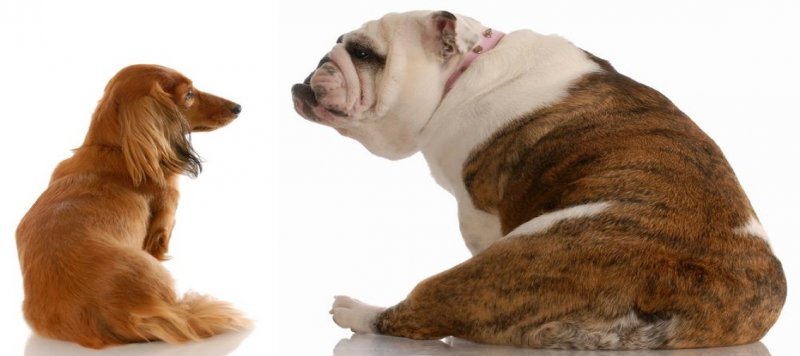4 Ways to Fight Weight Loss in Dogs

It can be a real source of worry to see your dog lose weight. They tend to become less bouyant and look malnourished. If not supplied with appropriate nutrients, they could be susceptible to a number of health issues.
The health of your dog is vital, and weight loss might be a sign of ill health. Fortunately, there are a few ways to help your dog put weight back on after having experienced weight loss for whatever reason. Here are some you should follow:
- Find Out Why Your Dog is Losing Weight
If a dog whose weight has been normal suddenly starts losing it, there must be a reason for this. So, the foremost step to solving your dog's weight problem is to determine the reason behind their weight loss. There are several conditions that can be responsible for weight loss in dogs - one being age, as many dogs begin to lose weight as they get older.
Another is the presence of medical conditions such as digestive disorders, intestinal worms, diabetes, lack of pancreatic enzymes, liver disease, cancer, and others. Lack of appetite can also be responsible for weight loss in dogs.
Once the cause of weight loss is discovered, it becomes easier to solve. Firstly, you’ll have to subject the dog to constant monitoring and supervision. When you watch over the dog closely, you might find out that they’ve been losing weight simply because other dogs steal their food.
- Make Sure Your Dog Eats the Right Quantity and Quality of Food Daily
Like humans, dogs get energy from the food they eat. The higher the amount of energy a dog gets, the more weight it is likely to put on. Proper nutrition serves both as a way of preventing weight loss, as well as regaining it (after weight loss has already occurred).
To prevent weight loss, you’re advised to increase the quantity of food your dog normally eats. If your dog is a kibble-feeder, add an extra cup, (full or half) to what you normally give them. If they’re a raw feeder, then adding extra meat will ensure your dog never loses weight. Also, if the dog's diet is homemade, the quantity of protein and carbohydrates should be increased. However, care should be taken so as not to feed the dog more than normal, as that can bring its own problems.
On the other hand, you can achieve weight gain in a dog that has already lost weight (or that’s losing weight) by feeding them foods that are rich in calories. In this case, foods rich in protein and fats should be chosen. Your dog won't only gain weight, but will also stay happy, because according to Ultimate Pet Nutrition, “Optimal nutrition is the key to happy life”. So, feed your dog well, so they’ll maintain weight and be happy too.
- Employ Feeding Hacks
Another way to fight weight loss in your dog is to hack its feeding style. For example, let's say you give your dog an equal amount of food two times every day; you can then hack it by providing a smaller quantity in the morning and a bigger quantity at night.
The idea behind this is that the energy in the larger quantity of food will be stored up as fat, since the dog’s body will hardly utilise this when sleeping. However, be sure not to give the dog too small a quantity in the morning, as this might cause them to starve.
Alternatively, instead of feeding your dog twice a day, you can choose to divide the food into smaller portions, so that they are fed three or four times a day. This method will ensure that nutrients are always available for the dog’s metabolic and physical activities.
- Ensure Your Dog Gets Good Exercise
Some pet owners associate exercise with weight loss, but this is not actually so. Good exercise helps the dog to build muscle, which is one positive way to gain weight. Furthermore, exercise can be a way to increase appetite in dogs that are losing weight as a result of a lack of appetite. So, always be sure to give your dog good exercise, and regularly too.
Finally, the methods discussed above are surefire ways to help your dog gain weight and wear that healthy look you have always wanted it to have. Additionally, you should regularly have your dog checked by an expert to check fitness and good health. This will help identify potential illnesses in time and treat them accordingly.
More to Read:
Previous Posts:



